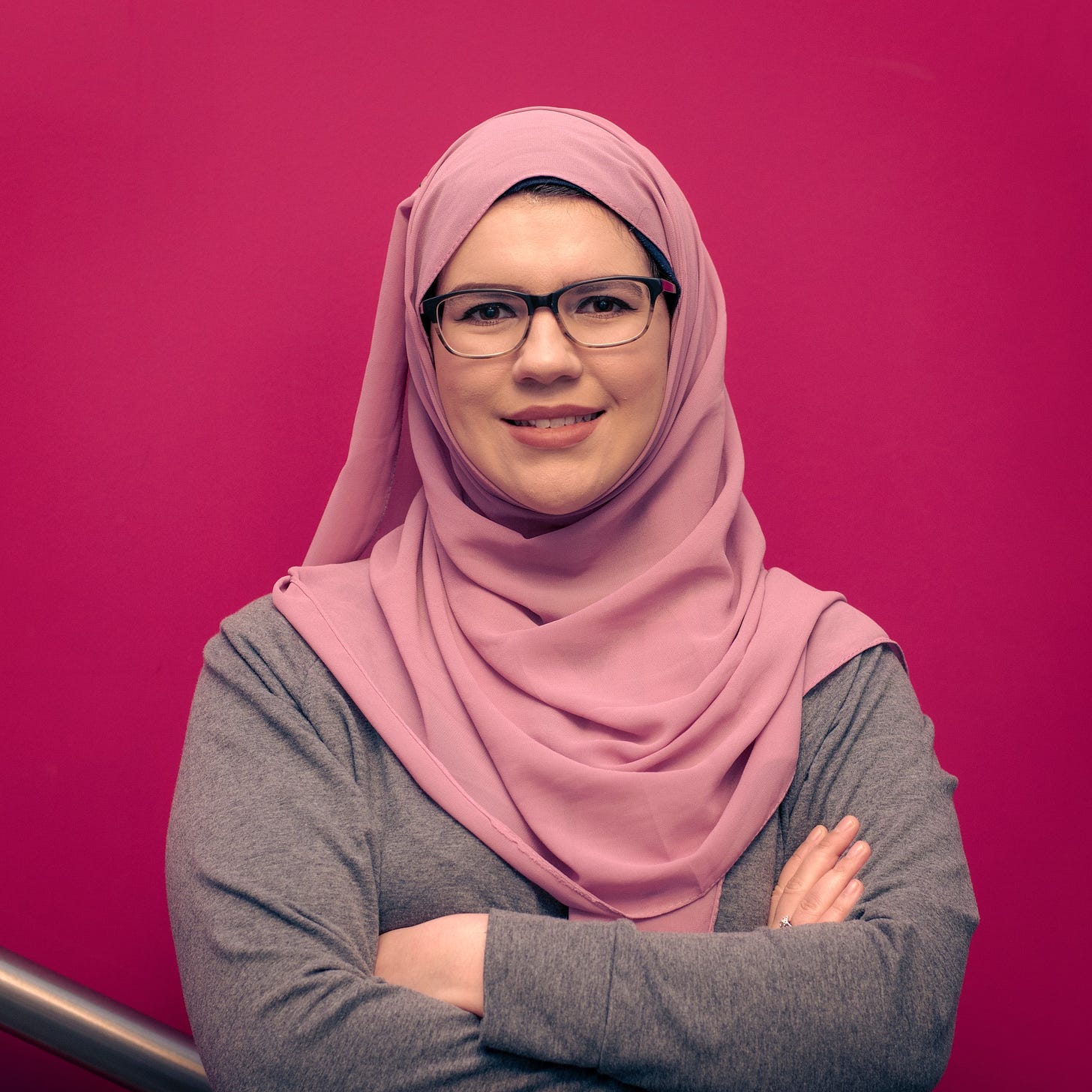Yousra Imran: “This is me - take it or leave it!”
The writer on how she found her true self in the middle of clashing cultures

Hi, welcome back to Mixed Messages! This week, I speak to Yousra Imran, who is of Egyptian and white British heritage. Yousra’s first novel, Hijab and Red Lipstick, follows Sara, a mixed teen who struggles to find her voice with a strict Egyptian father and a move to the Arabian Gulf. I wanted to see how closely this novel followed Yousra’s own experiences as a mixed Muslim woman.
How do you define your heritage?
Now I call myself a British Arab. Growing up, I’d say I was half-English and half-Egyptian. In the UK, nobody batted an eyelid, but in Qatar, where I lived, they don’t understand the concept of being mixed-race. Over there, you are whatever your father is. I think it’s connected to the patriarchal culture.
Have you always felt like you’ve been seen as ‘other’?
I’ve gone through phases of either being seen as white or as Egyptian. In school, when I lived in London, I was very proud of my Egyptian heritage and the fact that I could speak two languages. I felt a bit exotic. But at the end of the day, I still felt British.
Things changed when I moved to the Middle East. I felt like I was treated better because I was British. Then when people found out I was Egyptian, they tried to make me feel ashamed. Egyptians were not considered highly at all. It did make me wish I wasn’t Egyptian, which upset my patriotic dad.
How did you fight back against conservative Arab ideals impressed on you from your father?
I felt frustrated at the Arab idea of how a teenager should behave. I’ve always been happy within my religion, but my dad was conflating a very old fashioned Egyptian culture with Islam. I wanted more freedom.
I found my voice when I was 26. Up until then, I’d been passive and quiet, especially with men, but I reached a point where I’d had enough. I moved out to live by myself and found my independence. I was able to tell people that I didn’t care what they thought, this was me. Take it or leave it!
I’m quite lucky that my dad was willing to let go a bit, and by letting go, I lived my own life and came back full circle. I decided that I wanted to learn more about my religion on my own terms, and I decided to cover my hair because it wasn’t being forced on me anymore.
Do you think it would have been different if your mum was the Eyptian parent, and your dad was English?
No, Egyptian women are very strong! I think I would have gotten away with more, but she would still have made sure I felt my identity as a half-Egyptian woman.
Growing up in the UK, how did you feel your identity as a half-Egyptian woman?
My native language is English, but my dad made sure that we went to Arabic school on Saturdays. We listened to a lot of Arabic music as well. In England, my mum and dad shared the cooking, so we ate English and Egyptian dishes, and we also had a big Egyptian community in London.
In my teens and 20s, I felt this continual internal clash. But only in the last two or three years have I felt content in my mixed identity.
How much have you shared of your own experience in Hijab and Red Lipstick?
The book isn’t a memoir, it's a novel, but I've put so many of my own life experiences into it - changing names and locations of course. My main character, Sara, is mixed Egyptian and English. I think it would have been harder to write a fully Egyptian character, even though I am Egyptian. The longest I’ve spent there is three months, so it would require a lot of research.
Someone asked me if I was ready for some backlash to the book, and I am. I speak very openly about domestic and sexual abuse, homophobia and mental health. There will be a group of readers saying this novel is a stereotype of a Muslim father figure, and another saying my own, or rather my main character’s actions, are shameful. But you can’t discount a woman’s story just because you don’t like it.
What's the biggest thing you hope people take away from the book?
The psychological impact it has on a child when you move from one country to another - especially when the cultures are completely different.
If you could define your personal mixed experience in one word, what would that word be?
Evolving. The older I get, the more comfortable I am in my skin.
Next week, I’ll be talking to journalist Gabrielle Dyer. Subscribe to get Mixed Messages in your inbox next Monday!
Mixed Messages is a weekly exploration of the mixed-race experience, from me, Isabella Silvers. My mom is Punjabi Indian (by way of East Africa) and my dad is white British, but finding my place between these two cultures hasn’t always been easy. That’s why I started Mixed Messages, where each week I’ll speak to a prominent mixed voice to delve into what it really feels like to be mixed.





